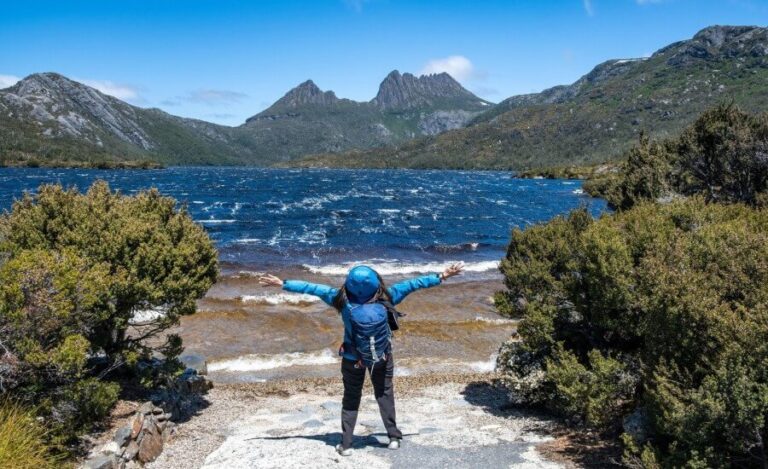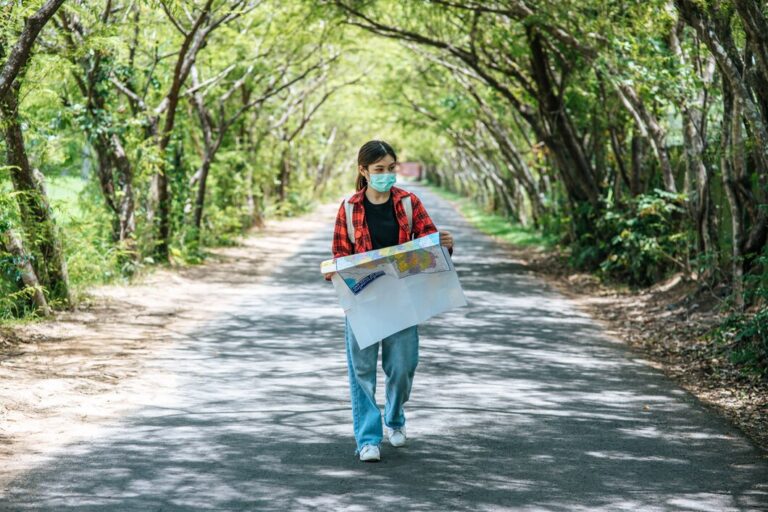
There is no denying the appeal of travel in a world that is becoming more interconnected by the day. Yet, as we explore new destinations, it’s crucial to consider our impact on the planet and its communities. This is where sustainable travel comes in a conscious approach to exploring the world while minimizing your environmental footprint and maximizing positive cultural and economic contributions. For beginners eager to embark on greener adventures, understanding the principles of sustainable travel is the first step towards making a real difference.
This comprehensive guide will equip you with the knowledge and actionable sustainable travel tips to transform your trips into truly responsible and rewarding experiences. From how to plan to what to pack, we’ll cover everything you need to know to become a mindful global citizen.
Understanding Sustainable Travel: Why It Matters for Our Planet
Sustainable travel, often referred to as green travel, is about making responsible choices that respect the environment, local cultures, and economies. It’s not just a trend; it’s a necessity for preserving the beauty and diversity of our planet for future generations. But why is sustainable travel important?
Every journey we undertake has an impact. From the carbon emissions of flights to the waste we generate and the resources we consume, our choices as travelers can either degrade or uplift a destination. When we ignore sustainability, we risk:
- Environmental Degradation: Excessive tourism can result in resource depletion, pollution, and habitat damage.
- Cultural Erosion: Without respect, local traditions, customs, and heritage can be diluted or exploited.
- Economic Leakage: When tourist money doesn’t stay local, communities don’t benefit from the influx of visitors.
Conversely, embracing sustainable travel allows us to:
- Protect Natural Ecosystems: By reducing our footprint, we help preserve biodiversity and pristine landscapes.
- Support Local Communities: Choosing local businesses ensures that tourism revenue directly benefits the people who live in the destination.
- Foster Cultural Exchange: Engaging respectfully with local cultures creates meaningful experiences for both travelers and hosts.
- Reduce Our Carbon Footprint: Mindful transportation choices and resource conservation help combat climate change.
Ultimately, sustainable travel is about leaving a place better than, or at least as good as, you found it. It ensures that our wanderlust doesn’t come at the expense of the places we love and the people who call them home.
Top 10 Sustainable Travel Tips to Make the World a Greener Place
Are you prepared to turn your next trip into a successful green travel experience? To assist you in taking more environmentally friendly vacations, here are our top ten sustainable travel suggestions. These essential tips for eco-friendly trips cover everything from planning to on-the-ground practices.
- Choose Responsible Transportation: Air travel is a significant contributor to carbon emissions. Opt for direct flights when possible, or consider alternative modes like trains, buses, or even cycling for shorter distances. Once at your destination, prioritize public transport, walking, or biking over taxis.
- Pack Light & Smart: Lighter luggage means less fuel consumption on flights. Pack only what you need, and opt for versatile, durable items. To reduce single-use plastics, bring reusable necessities like shopping bag, silverware, coffee cup, and water bottle.
- Support Local Businesses and Economies: Seek out locally-owned restaurants, shops, tour operators, and accommodations. This ensures your money directly benefits the community, fostering economic resilience and preserving local authenticity.
- Conserve Resources Consciously: Be mindful of your energy and water consumption in hotels. Reuse towels, take shorter showers, and turn off the lights and air conditioner when you’re done. Treat water as a valuable resource, especially in regions facing scarcity.
- Minimize Waste and Recycle: Reduce, reuse, and recycle. Avoid buying packaged goods, especially plastics. If recycling facilities are available, use them. Until you can properly dispose of your trash, keep a little bag with you.
- Respect Local Culture and Traditions: Learn a few basic phrases in the local language, dress appropriately, and be aware of cultural norms. Ask permission before taking photos of people, and engage with locals respectfully. Your presence should be enriching, not intrusive.
- Choose Eco-Friendly Accommodations: Look for hotels or guesthouses that have sustainability certifications (e.g., LEED, Green Key) or clearly state their environmental initiatives, such as renewable energy use, water conservation, and waste management.
- Eat & Drink Sustainably: Embrace local cuisine. Eat seasonal produce, try vegetarian or vegan options, and avoid food waste. To safely consume tap water, bring your own water filter bottle and stay away from purchasing bottled water.
- Engage in Ethical Wildlife Tourism: If wildlife encounters are part of your trip, ensure they are ethical. Avoid activities that involve riding animals, touching wild animals, or visiting facilities that exploit animals for entertainment. Choose reputable sanctuaries or national parks.
- Educate Yourself & Others: Learn about the environmental and social issues facing your destination. Share your sustainable travel experiences with friends and family, inspiring them to make more responsible choices. Knowledge is power in promoting positive change.
By integrating these tips into your travel habits, you’re not just taking a trip; you’re contributing to a healthier planet and stronger communities.
Mastering Sustainable Travel Planning: Essential Steps for Beginners
Embarking on a sustainable journey begins long before you pack your bags. Beginner-friendly sustainable travel planning entails careful planning that reduces adverse effects and optimizes beneficial contributions. Here’s how to travel sustainably from the outset:
- Research Your Destination Thoroughly: Beyond tourist attractions, delve into the local culture, environmental challenges, and social dynamics. Knowing the background enables you to make well-informed choices regarding where to go, what to do, and how to act politely. Look for information on local customs, eco-friendly initiatives, and community-based tourism projects.
- Choose Off-Peak Travel: Traveling during the shoulder or off-season can alleviate pressure on popular destinations, reduce crowding, and often lead to a more authentic experience. It also typically means better deals on flights and accommodation.
- Support Certified Eco-Tourism Operators: When booking tours or activities, seek out operators with recognized eco-certifications or those clearly committed to sustainable practices. They often prioritize environmental protection, fair wages for employees, and community engagement. You can look for certifications from organizations like Green Globe, Ecotourism Australia, or Rainforest Alliance.
- Consider Shorter, Deeper Trips: Instead of rushing through many destinations, choose to spend more time in fewer places. This creates more meaningful relationships by lowering your trip footprint and enabling a greater level of cultural engagement.
- Offset Your Carbon Footprint (Optional but Recommended): While reducing emissions is paramount, some are unavoidable. Consider contributing to certified carbon offset programs that invest in renewable energy projects, reforestation, or energy efficiency initiatives. Seek out respectable companies such as Verified Carbon Standard or Gold Standard.
- Plan for Minimal Waste: Before you leave, consider everything you’ll need to avoid disposable items. This goes beyond just water bottles. Consider packing solid toiletries (soap, shampoo bars), a reusable menstruation cup, and perhaps a little cloth bag for mementos.
By integrating these preparatory steps, you lay a strong foundation for an truly eco-friendly trip.
Beyond the Greens: Embracing Tech-Free Travel
While much of sustainable travel focuses on environmental impact, true sustainability also encompasses personal well-being and connection. In our hyper-connected world, tech-free travel presents a unique opportunity for digital detox travelers to deepen their experience, reduce energy consumption, and support local engagement.
Opting for a tech-free or low-tech approach means consciously limiting your reliance on smartphones, laptops, and other gadgets. This isn’t just about saving battery life; it’s about:
- Heightened Awareness: Without constant digital distractions, you’re more present in your surroundings, noticing details, sounds, and interactions you might otherwise miss.
- Deeper Local Connection: Instead of navigating via GPS or researching on your phone, you might ask locals for directions or recommendations, fostering genuine exchanges.
- Reduced Energy Consumption: Less charging of devices means less electricity consumption, aligning with the energy conservation aspect of sustainable travel.
- Mental Rejuvenation: A digital detox allows your mind to truly unwind, reducing screen fatigue and promoting a sense of calm and mindfulness. This is particularly beneficial for nature travelers seeking tranquility.
Consider leaving your laptop at home, turning off data roaming, or setting specific “no-phone” times for your trip. Embrace paper maps, guidebooks, and conversations. This approach not only makes your journey more sustainable from an energy perspective but also enriches your personal experience, allowing for a more profound connection with your destination and yourself.
Final Thoughts: Your Journey Towards a Better World
Embarking on sustainable travel is a powerful way to explore our incredible world while ensuring its preservation for generations to come. It’s an ongoing journey of learning and conscious choice, a commitment to leaving a positive legacy wherever you roam. By adopting these green travel tips and embracing a mindset of responsibility, you become part of a global movement advocating for more ethical and environmentally sound tourism.
Remember, every small choice adds up, from opting for public transport to supporting a local artisan. Your commitment to eco-friendly trips not only benefits the planet and its people but also enriches your own travel experiences, fostering deeper connections and more meaningful memories.
Ready to plan your next responsible adventure? Explore more sustainable travel guides and resources on our blog to discover new destinations and gain further insights into making every trip count!
Sustainable Travel FAQs
What is sustainable travel exactly?
The goal of sustainable travel is to maximize good contributions to the economy, society, and environment while minimizing negative effects. It involves making conscious choices about transportation, accommodation, activities, and interactions to ensure a destination remains vibrant and healthy for both locals and future visitors.
How can I lessen my travel-related carbon footprint?
Prioritize direct flights, choose trains or buses over airplanes wherever feasible, take public transportation, walk, or cycle to your destination to lessen your carbon footprint. You can also choose eco-friendly accommodations that use renewable energy, minimize waste, and consider offsetting unavoidable emissions through certified programs.
Is sustainable travel more expensive?
Not necessarily. While some eco-certified accommodations or tours might have a slightly higher upfront cost due to their sustainable practices, many sustainable choices can actually save you money. For example, using public transport, eating at local eateries, bringing reusable items, and self-catering can significantly reduce expenses compared to traditional tourist traps.
What should I pack for an eco-friendly trip?
For an eco-friendly trip, pack essentials like a reusable water bottle, coffee cup, and shopping bag. Include solid toiletries (shampoo bars, soap) to reduce plastic waste, a portable cutlery set, and versatile, quick-drying clothing to pack light. Consider a small trash bag for waste until proper disposal is available.
How do I find truly sustainable accommodations?
Look for accommodations with recognized eco-certifications such as Green Key, LEED, or similar national/international standards. Research their specific practices: do they conserve water and energy, manage waste properly, support local staff and suppliers, and engage with the community? Reading recent reviews can also offer insights into their actual commitment to sustainability.






